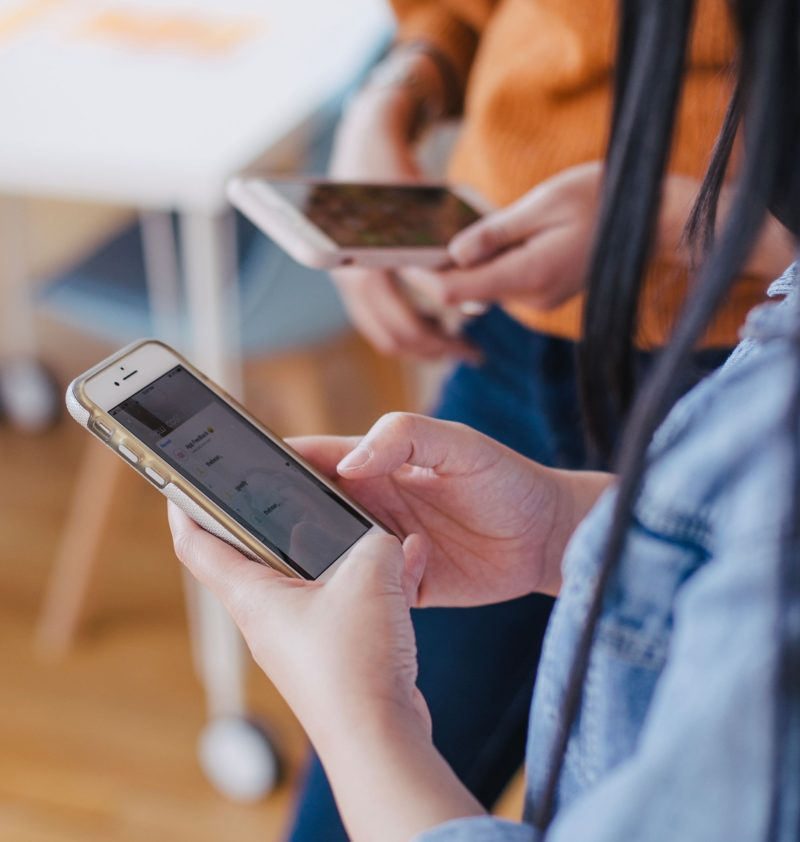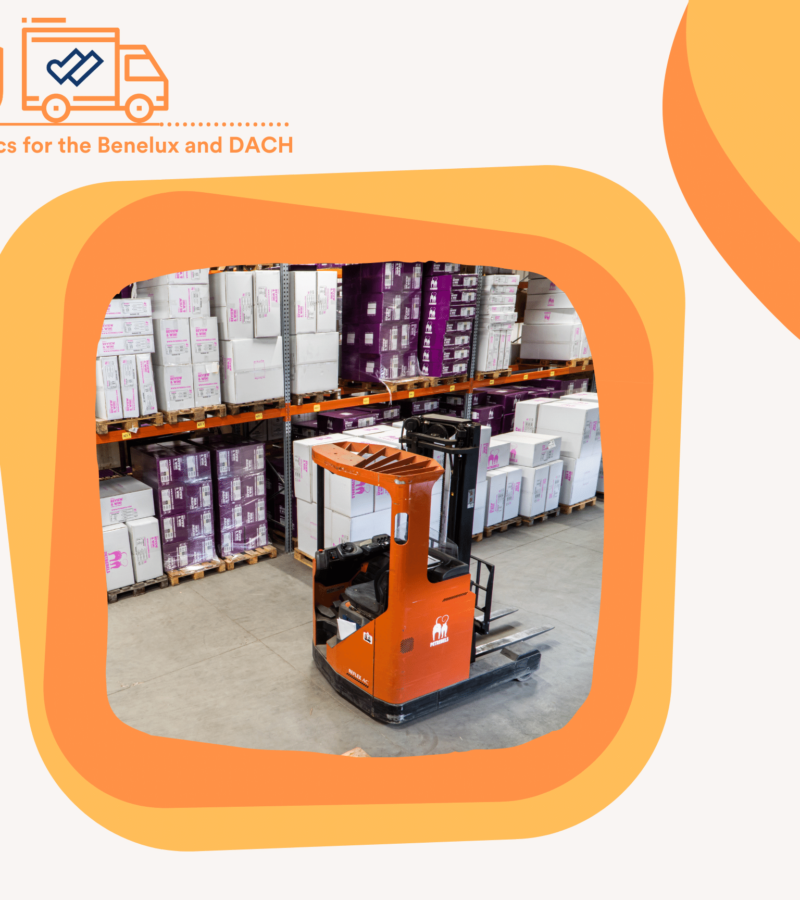
E-consultations are currently an indispensable tool for doctors and patients (even after the corona crisis).
If there is one sector where technological developments have a major impact on us all, it is healthcare. The corona crisis has even accelerated our knowledge and acceptance of e-health. Take, for example, e-consultations at the family doctor’s office. Whereas many Dutch people have come to consider it quite normal to meet and consult online on a daily basis within a year, video calling with the GP is also much more common now than a few years ago. More and more patients and GPs are discovering the benefits of a video consultation. Especially if you know that this is done via a secure and encrypted connection. And SMS takes care of that.
More and more family doctors and other healthcare providers are using video calling with their patients; they see and speak to each other via a secure connection at an agreed upon date and time. The global corona crisis has contributed considerably to the accelerated acceptance of remote medical consultation. In many cases it was (and is) a good alternative to a regular visit to the family doctor. And many people have experienced it that way.
When to go to the doctor
But an e-consultation is not something you just schedule. For serious complaints or physical examination, as a doctor you want to meet the patient in the consulting room and examine them. Just like with complaints that may have a psychological cause, or with emergencies. In these cases, it is better to see and speak to each other in person. However, there are still plenty of situations where the benefits of video calling are many times greater than a physical visit to the doctor.
E-consultation replaces visits (partially)
The ‘e’ in the word e-consultation stands for ‘electronic’ but could very well stand for ‘easy’ as well. Not only because the more ‘simple’ complaints can often be diagnosed via an e-consult. But also because video calling is simple in many ways. For example, the following diagnoses and treatments lend themselves well to an electronic consultation:
- Personal living style advice and possible follow-up checks
- Requesting and discussing the results of an examination
- Questions about medications and possible side effects
- Questions where the patient finds conflicting answers online
- Regular check-ups for chronic diseases (such as Asthma)
- Recurring physical complaints that do not require acute care
- Questions that do not occur to the patient until later after a previous consultation
It is also not inconceivable that, in the future, a general practitioner’s office will use a video link to make an initial diagnosis when, for example, someone is at a great distance. Or if transportation is a problem for some other reason. So a remote call or diagnosis is not always a good alternative, but in a number of cases the advantages outweigh the disadvantages. It is already a fact that e-consults will continue to be part of the service of an increasing number of general practitioners even after the corona crisis, both for the young target group and the older patients. When making the appointment, the general practitioner or assistant will decide, in consultation with the patient, what it will be: a live appointment in the general practice or an online call where the patient can log in via SMS at home via a secure connection.
How does video calling work?
- The client or patient makes an appointment at the general practice in the regular way (for example, by calling or via a website).
- Depending on the medical complaint, the GP schedules an e-consultation.
- The GP sends a confirmation of the e-consult to the patient (via SMS or e-mail) with a link to the video consultation.
- The patient opens the link to the online consultation at the agreed time.
- Before the patient can connect, he/she receives an SMS message containing a One Time Password (OTP) as an extra security.
- By entering this one-time password, the patient gains access to the virtual waiting room and can safely participate in the e-consultation with the GP.
- The GP and patient see each other via the screen and the consultation with the patient can begin.
Advantages e-consultation for patients
- An e-consultation is low-threshold; patients often find this way of contacting their GP easier than a regular visit.
- Travel is not necessary. This saves time and costs (and often inconvenience).
- An e-consult is possible from any location, even from work for example.
- The living room = the waiting room: it is much more pleasant to talk to a doctor in your own, familiar surroundings than in a clinical, medical environment.
- No waiting times due to extended consultation hours.
- It is easy to invite others to the e-consultation, such as family members or an interpreter. Even if these are at a distance.
- There is no risk of contamination (e.g. with corona).
- It is easy to share information via the screen. This ensures clear information delivery (to and from the patient).
- An e-consult also has a chat function. This often works better than, for example, (illegible) handwriting from the doctor.
Benefits of e-consultations for doctors
- An e-consultation is an extra service for your patients, it offers convenience.
- Patients have more choices: come to the practice or schedule a consultation via video call.
- Video calling provides better accessibility to the general practice.
- There is better, mutual information provision.
- By offering video calling, your practice remains up-to-date (moves along with social and technological developments).
- This form of e-health allows for more efficient operations.
- The privacy around video calls is well regulated (via a One Time Password and/or Two Factor Authentication).
SMS ensures a secure connection
This last point (guaranteed privacy) is obviously an important issue for patients as well because during an e-consultation both personal and medical information is exchanged. This data cannot simply end up with other parties without legal permission. Patients therefore benefit from a secure connection during video calls. But how do patients and physicians know that the information is being transferred in a secure manner? The answer is simple and contains only three letters: SMS.
OTP and 2FA in healthcare
The use of SMS in healthcare leads to many good things every day.
SMS service is also an indispensable link in video calling between GP and patient. How it works. Two Factor Authentication (2FA) and a One Time Password (OTP) via an SMS message provide extra secure and encrypted connections when entering an online space. In a very accessible way. Because an SMS arrives quickly on your mobile, via the phone line (so you don’t need wifi or 4G). And only after entering the code is the connection made. SMS authentication is the way to send one-time passwords and login codes. All data is encrypted, not only during transmission but also ‘at rest’ (disk encryption for database storage).
ISO & NEN guarantee security
OTP and 2FA via an SMS message are effective security methods, as this technique has already amply proven. Also in e-health, such as video consultations between patient and doctor. But you can work even safer. By working with an SMS provider that has the necessary certificates in this area. And that’s where Spryng comes in. As the only SMS provider in Europe Spryng is ISO 27001 & NEN 7510 certified.
ISO 27001 is the world standard for information security. The NEN certification is specifically for information security in healthcare. It is intended for healthcare institutions and suppliers to deal adequately with patient data. With the ISO & NEN certificates from Spryng the safety of your data (and of your patients) is guaranteed to be in good hands.
Extra service with SMS
The SMS Gateway from Spryng is standardly linked to many Multi Factor Authentication systems. So you can easily send SMS messages from your practice within minutes. Even in multiple languages!
We work closely with all major EHRs to ensure that every message (from OTP to appointment reminder) is always sent with the same high security standards. A guarantee for safe and effective communication! In short, by offering e-consults via SMS authentication, safety is a certainty and you prepare your practice for the future. Because with e-consults you do not exclude anyone: It helps older patients who are less able to come to the practice and it ensures a better connection with the younger target group.
Video calling in the practice
Would you like to know how you as a GP can introduce or promote the use of e-consults? On the website of the Dutch General Practitioners Association is the practical handbook “E-consultation, how do we arrange that?”.
This is free to download. As well as our whitepaper on SMS in healthcare
SMS API: Also for a drop in no shows
Did you know that SMS service not only enables video consultations in a safe way? You can also reduce the number of ‘no-shows’ with one simple SMS API. Quite easily, by sending an automatic appointment confirmation and appointment reminder via SMS to your patients. Spryng has been working for many healthcare institutions (from large hospitals to small dental practices) for years to reduce the number of ‘no-shows’.
With success! Would you like to offer this service to your clients or patients as well? Please contact Spryng for more information. Or try for yourself how easy our SMS API works in healthcare, with a free test account.
Would you like an immediate quote for our SMS services? Click here. You can also contact Spryng for other questions: info@spryng.de or +49 30 3080 6900
Stay up to date
All developments in the field of e-health and messaging with your patients clearly in your mailbox. You can do this with the free digital newsletter from Spryng. This appears about six times a year and can be cancelled at any time.


